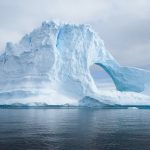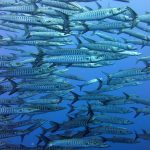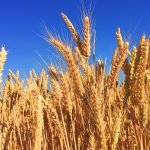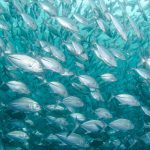 June 6, 2019 2:03 pm
Published by Climate Extremes
June 6, 2019 2:03 pm
Published by Climate Extremes
New study highlights local warming is expected to accelerate beyond the global average in mid latitude regions, especially in summer. Over oceans the rise will be below global average warming.
 May 30, 2019 10:31 am
Published by Climate Extremes
May 30, 2019 10:31 am
Published by Climate Extremes
CLEX researchers and colleagues revisit the quasi-equilibrium analytical framework introduced by Comins and McMurtrie (1993) and explore the consequences of specific model assumptions for ecosystem net primary productivity (NPP).
 May 29, 2019 2:02 pm
Published by Climate Extremes
May 29, 2019 2:02 pm
Published by Climate Extremes
New work published in Nature Communications develops a correction method that ensures the probability of climate extremes in the model simulations are consistent with real-world observations. In addition, it also corrects the rate of the long-term changes and the inter-annual variability so that it is consistent with observations.
 May 13, 2019 2:57 pm
Published by Climate Extremes
May 13, 2019 2:57 pm
Published by Climate Extremes
New research confirms the long-term cooling over Antarctica during the last millennium and the delayed onset of anthropogenic warming are found in simulations that assimilate palaeoclimate data. This is not evident in simulations without data assimilation.
 May 13, 2019 9:59 am
Published by Climate Extremes
May 13, 2019 9:59 am
Published by Climate Extremes
Project: To investigate rapid shallow-water/coastal marine cooling events characterised by sudden transitions from marine heatwave to marine cold spell conditions, and the risk likelihood to vulnerable fish species.
 May 2, 2019 1:24 pm
Published by Climate Extremes
May 2, 2019 1:24 pm
Published by Climate Extremes
CLEX researchers and colleagues from Australia, Germany and the US have quantified the effect of climate extremes, such as droughts or heatwaves, on the yield variability of staple crops around
the world. Overall, year-to-year changes in climate factors during the growing season of maize, rice, soy and spring wheat accounted for 20%-49% of yield fluctuations, according to research published in Environmental Research Letters.
 March 25, 2019 1:58 pm
Published by Climate Extremes
March 25, 2019 1:58 pm
Published by Climate Extremes
CLEX researchers and colleagues discovered which species are most important in transferring climate change impacts through the ecosystem using a model that simulated the southeast Australian ecosystem through to 2050.
 March 18, 2019 2:38 pm
Published by Climate Extremes
March 18, 2019 2:38 pm
Published by Climate Extremes
Schools Weather and Air Quality (SWAQ) is a citizen science project funded by the Australian Government’s Department of Industry, Innovation and Science as part of its Inspiring Australia - Citizen Engagement Program.
March 11, 2019 4:30 pm
Published by Climate Extremes
Coastal ecosystems such as seagrass beds and seaweed communities are facing rapidly changing ocean conditions due to ocean warming, ocean acidification and eutrophication. The three speakers will talk about different approaches to understand the effects that the projected future ocean conditions will have on seaweeds and seagrasses, including omics techniques and field and laboratory based experiments. The speakers will also discuss opportunities to utilise marine macrophytes to mitigate impacts of climate change and salmon aquaculture and highlight how current research... View Article
 March 8, 2019 2:21 pm
Published by Climate Extremes
March 8, 2019 2:21 pm
Published by Climate Extremes
CLEX researchers evaluate the performance of CORDEX simulations over Australia against gridded observations of temperature and precipitation.









